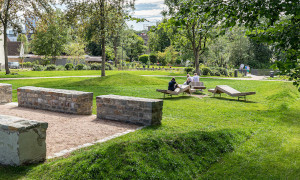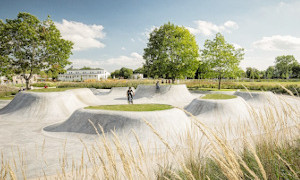Short and clear: Our top candidates explain the essential points of view in an interview.
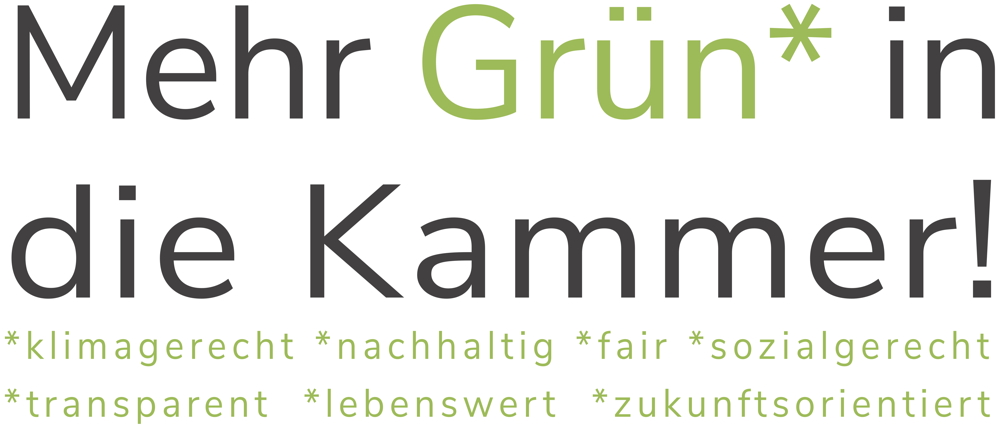
Election of the XIIIth Representative Assembly of the Bavarian Chamber of Architects
13 - 30 April 2021
Climate-friendly, sustainable, fair, socially just, transparent, liveable and future-oriented - the List 1 Landscape Architects bdla has expanded the slogan "More green in the chamber" for the chamber election 2021 with important future topics and formulated seven central demands in the election program.
The top candidates of List 1 Landscape Architects bdla explain which professional and social tasks are particularly urgent until 2026 and how the architectural community can successfully promote them in the chamber.
An interview with Ursula Hochrein, Franz Damm and Andreas Rockinger. Interview: Ulrich Stefan Knoll
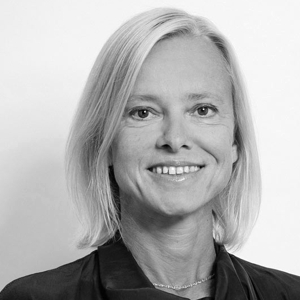 | 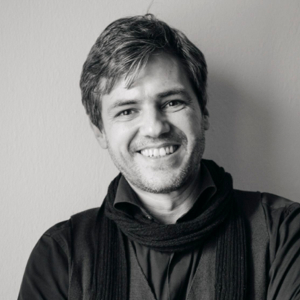 | 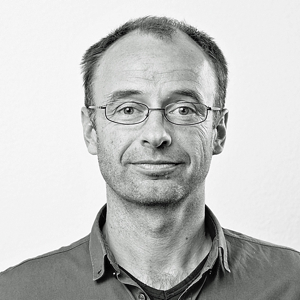 |
| © Thorsten Jochim | © Ulrike Myrzik | © Christian Kasper |
Climate change, exorbitant land consumption, loss of biodiversity, to name just a few pressing contemporary issues - where do we currently stand as planners and as a society in terms of saving the planet?
Andreas Rockinger: From my point of view, we as planners are standing with both feet on different steps of a steep staircase - towards a future worth living. We have an enormous knowledge of the interrelationships of global issues. We know the huge challenges and at the same time the resistance in the implementation of space-saving, climate-relevant and diversity- yes, life-sustaining solutions. However, integrating this knowledge into our everyday lives - whether as planners or as private individuals - makes clear to us on a daily basis the persistence that lies in habits and patterns.
We can successfully tackle the pressing issues of the present by becoming active and visible on all levels with self-confidence and confidence! With this in mind, we are putting 40 candidates up for election to the Assembly of Representatives and are asking all colleagues for their vote so that we can also become active in the Bavarian Chamber of Architects in large numbers and with broad support.
In view of the existing, partly global challenges, how great must the influence of the Chamber, or rather of the architects represented in it, be in the next five years?
Franz Damm: In their petition to the Bundestag, Architects for Future very impressively explained the responsibility that building has for climate protection and resource conservation. The complex challenges we have to face also include other aspects. Species protection, land conservation, sustainable mobility, but also the social issues triggered by change are of particular concern to us in open space, landscape and urban planning.
We must be careful not just to put a green cloak on what we build.
The pandemic has once again shown the value of well-designed spaces for physical and mental health. But we must be careful not just to put a green cloak over the built environment. "Green" architecture is only sustainable if the solution is so smart that it can be maintained and operated without high technical and energy costs.
We architectural professionals, regardless of discipline, have learned to keep the big picture in mind. We are used to taking in many different individual aspects and specialist knowledge, weighing them up and combining them into a meaningful whole. It is precisely these smart skills that are becoming increasingly important in a world of deepening knowledge in each discipline. The Chamber's job is to teach this to policymakers and the public. Our profession stands ready to use these skills to develop new solutions for the benefit of all.
However, we must not forget that specialisation is also taking place in our disciplines that deal with the creation of the built environment. Our professional profile is changing. It is also becoming broader, more diverse but also more digital. We must see this as an opportunity and embrace change.
Andreas Rockinger: In 2019, bdla Bavaria has set up several working groups in which members and interested parties alike deal with important, current issues - be it climate protection, landscape development or economics. We would also like to bring these discussions and their findings into the committees of the chamber, in order to be able to master the upcoming challenges faster and better in the circle of the entire architectural community.
Due to their professional and cross-sectional training, landscape architects can make a significant contribution to the pressing social and ecological challenges of our time - to what extent do we fulfil this potential?
Ursula Hochrein: Planning is becoming increasingly complex in many respects, and at the same time the public is becoming more and more aware of the importance of public space and the value of our landscape. In order to develop spaces in a qualified manner, we need strong teams from a wide range of disciplines in order to do justice to all ecological, social, technical, economic and, last but not least, design aspects. Coordinating these teams requires at least a basic knowledge of the other disciplines in order to weigh up the various concerns in the joint planning process and to coordinate them optimally. This is where the cross-sectional training in landscape architecture comes in handy. For example, in the planning of inner-city open spaces, which must take into account the usually complex existing situations, many additional requirements for mobility, climate protection, accessibility and much more.
In order to develop spaces in a qualified manner, we need strong teams from a wide range of disciplines in order to do justice to all ecological, social, technical, economic and, last but not least, design aspects.
But also with regard to our landscape, which cannot be used more than once. Do we want to preserve the cultural landscape, which is also attractive from a tourist point of view, and promote the protection of species, generate energy, produce food in an economical way or designate further building sites and traffic areas?
This consideration and the development of large-scale strategies for our landscape also require cross-sectional planning - with all the competencies at the round table and the moderation of these processes. Here we see the chance that we, as landscape architects, can make an important contribution and, through our involvement in the Bavarian Chamber of Architects, we want to encourage this to be done in cooperation with the other disciplines.
In your opinion, what organisational and administrative foundations must be created in the Chamber in the near future so that the future can be successfully shaped?
Franz Damm: The service and consulting tasks of the chamber towards members, clients and customers have grown continuously over the years. In recent years, the Chamber has also become more political and has taken on a stronger role as a lobbying organisation for building culture and, of course, for architects. The structures must also be adapted to this.
It would be important to be able to address young colleagues more with more digitalisation and transparency.
I worked intensively in a small project group within the board to develop more efficient organisational structures. This includes making the chamber more digital.
A committee information system will improve the integration of volunteers in the future. In addition, many services will be available online in the future. There is also always room for improvement in the details: The website should become more user-friendly, newsletters could be tailored more specifically to individual user interests. Especially with regard to the Academy's offerings, the Corona pandemic has already significantly accelerated the process of digitalization.
It would be important for me to be able to address young colleagues more strongly with more digitization and transparency. Because we can only successfully shape the future if we better involve our young people in our work.
Another topic: I notice that the chamber is still a kind of "black box" for many members. Therefore, I would like to advocate for the Board to not only report to the Representative Assembly every six months in the future, but to be accountable to all members. In order to get more direct feedback, I can also imagine setting up regular, open online discussion rounds as a board member.
- Latitude: 0
- Longitude: 0
